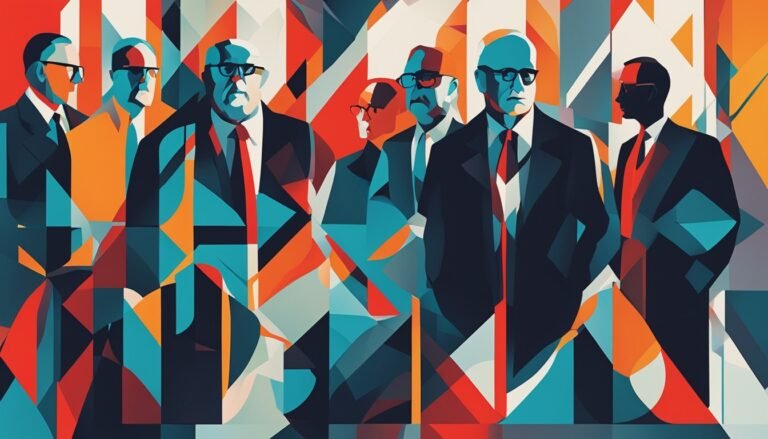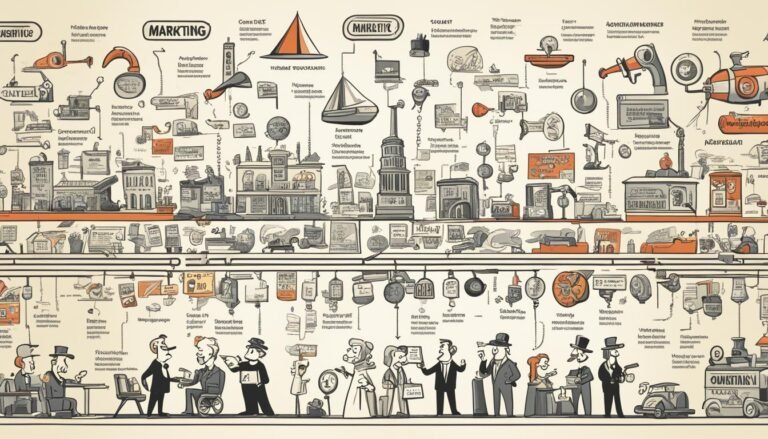Loyalty Program Psychological Impact
As you go about your day, you may not realize the subtle influence loyalty programs have on your psyche. You may think they are simply a way for businesses to reward your loyalty, but the truth is, they have a much deeper impact on your behavior and decision-making. From creating a sense of exclusivity to fostering emotional connections, loyalty programs have a powerful psychological effect that can't be ignored.
But how exactly do these programs shape our perceptions and choices? And what strategies can businesses employ to maximize their effectiveness? In this discussion, we will explore the psychological impact of loyalty programs and uncover the strategies that make them so effective, leaving you eager to learn more about this fascinating topic.
Key Takeaways
- Rewards have a profound psychological impact on customers, influencing their behavior and fostering loyalty.
- Loyalty programs that offer rewards increase the likelihood of customers continuing to purchase from the brand and recommending it to others.
- Creating a sense of exclusivity through personalized experiences and VIP events enhances customer satisfaction and connection.
- Emotional brand attachment is crucial for building lasting connections between customers and brands, leading to higher levels of customer satisfaction and loyalty retention.
The Power of Rewards
The utilization of rewards within loyalty programs has a profound psychological impact on customers, influencing their behavior and fostering a deeper sense of loyalty towards a brand. Rewards act as powerful incentives that encourage customers to engage with a brand on a consistent basis, ultimately leading to increased customer retention.
Research has shown that customers are more likely to remain loyal to a brand when they're rewarded for their continued engagement and purchases.
One study published in the Journal of Marketing found that customers who were enrolled in a loyalty program with rewards were significantly more likely to continue purchasing from the brand compared to those who weren't part of a loyalty program. The study also revealed that customers who received rewards were more likely to recommend the brand to others, further enhancing customer retention through word-of-mouth marketing.
The psychological impact of rewards is rooted in the concept of reciprocity. When customers are rewarded for their loyalty, they feel a sense of obligation to reciprocate by continuing to engage with the brand. This reciprocity fosters a deeper emotional connection between the customer and the brand, leading to increased loyalty and a higher likelihood of future purchases.
Creating a Sense of Exclusivity
Customers who are part of a loyalty program and have experienced the power of rewards are now ready to explore the next psychological impact: creating a sense of exclusivity. This is a crucial aspect of loyalty programs as it not only enhances customer satisfaction but also fosters a deeper sense of belonging and connection with the brand. By providing customers with VIP treatment, businesses can make them feel special and valued, leading to increased loyalty and engagement.
Here are three key ways in which loyalty programs can create a sense of exclusivity:
- Exclusive offers and promotions: By offering exclusive discounts, early access to sales, or limited-time promotions, businesses can make their loyal customers feel privileged and appreciated. This sense of exclusivity reinforces their commitment to the brand and encourages them to continue their patronage.
- Personalized experiences: Tailoring rewards and experiences to individual customers can make them feel like VIPs. This can include personalized recommendations, customized product offerings, or personalized communication. Such personalized treatment makes customers feel valued and recognized, strengthening their emotional connection to the brand.
- VIP events and experiences: Organizing exclusive events or experiences specifically for loyal customers can create a sense of exclusivity. Whether it's a private sale, a product launch party, or a behind-the-scenes tour, these events give customers a unique opportunity to engage with the brand in a special way, making them feel like part of an exclusive club.
Creating a sense of exclusivity in loyalty programs is a powerful psychological tool that can significantly impact customer retention and loyalty. By implementing these strategies, businesses can cultivate a stronger sense of belonging among their customers and ensure their continued support.
Building Emotional Connections
When it comes to building emotional connections with customers, it's important to understand the concept of emotional brand attachment.
Research has shown that customers who've a strong emotional bond with a brand are more likely to exhibit loyalty.
This emotional bond can be fostered through various strategies, such as personalized experiences, engaging storytelling, and genuine interactions.
Emotional Brand Attachment
Emotional brand attachment plays a crucial role in building lasting connections between consumers and brands. When customers form an emotional connection to a brand, they're more likely to remain loyal, make repeat purchases, and advocate for the brand to others. This attachment goes beyond rational factors such as price or product features, and taps into the customer's emotions and values.
- Emotional resonance: Brands that create emotional resonance with their customers by aligning with their values and aspirations are more likely to foster a strong emotional brand attachment.
- Trust and credibility: Building trust and credibility is essential for developing a deep emotional connection with customers. Brands that consistently deliver on their promises and provide quality experiences establish a foundation of trust.
- Personalization: Tailoring experiences and communications to individual customers can enhance emotional brand attachment. When customers feel seen and understood by a brand, they're more likely to form a strong emotional connection.
Customer Loyalty Psychology
Building emotional connections with customers is a crucial aspect of understanding customer loyalty psychology. Research has shown that when customers feel emotionally connected to a brand, they're more likely to have higher levels of customer satisfaction and loyalty retention.
Emotional connections are formed when customers perceive that a brand understands their needs, values, and desires, and makes efforts to meet them. When customers feel understood and valued, they develop a sense of trust and attachment towards the brand.
This emotional bond not only increases customer satisfaction but also leads to higher levels of loyalty retention. Brands that successfully build emotional connections with their customers are able to create a strong emotional tie that goes beyond rational factors, resulting in long-term customer loyalty.
Emotional Bond With Customers
Creating a strong emotional bond with customers is essential for fostering long-term loyalty and satisfaction. Research has shown that emotional connections have a significant impact on customer satisfaction and their willingness to engage with a brand.
Here are three key reasons why building emotional connections is crucial:
- Enhanced trust: When customers feel emotionally connected to a brand, they develop a sense of trust and loyalty. This trust allows them to feel confident in their purchasing decisions and builds a foundation for long-term relationships.
- Increased engagement: Emotional connections create a sense of belonging and attachment, leading to increased customer engagement. Customers who feel emotionally connected are more likely to actively interact with the brand, participate in loyalty programs, and provide valuable feedback.
- Positive word-of-mouth: Emotional connections can lead to customers becoming brand advocates. Satisfied customers who feel emotionally connected are more likely to recommend the brand to their friends, family, and social networks, resulting in positive word-of-mouth marketing.
Influence on Consumer Decision-Making
When it comes to loyalty programs, they have a significant influence on your preferences and decision-making as a consumer.
Research shows that loyalty programs can create emotional connections with customers, leading to more emotionally-driven decision-making.
This emotional decision-making can then have a direct impact on your behavioral loyalty, influencing your future purchasing decisions.
Influence on Preferences
The loyalty program's influence on consumer decision-making can be observed in the preferences that customers develop for certain brands or products. Loyalty programs have a significant impact on purchasing behavior, shaping consumer preferences and influencing brand perception.
- Increased brand loyalty: Loyalty programs incentivize customers to repeatedly choose specific brands, leading to a stronger emotional connection and preference for those brands. This loyalty can extend beyond the program itself and influence future purchasing decisions.
- Perceived value: Loyalty programs often offer exclusive rewards, discounts, or personalized offers. This creates a perception of added value for customers, making them more likely to choose brands associated with these benefits.
- Positive brand associations: By participating in loyalty programs, consumers feel a sense of belonging and affiliation with the brand. This positive association can lead to a preference for the brand and a willingness to advocate for it to others.
Emotional Decision-Making
The influence of loyalty programs on consumer decision-making extends beyond shaping preferences; it also plays a significant role in triggering emotional decision-making processes. Loyalty programs are designed to create an emotional connection between the consumer and the brand, leading to a heightened sense of loyalty and attachment.
Research has shown that emotions play a crucial role in the decision-making process, often guiding our choices more than rational considerations. Loyalty programs tap into this emotional aspect by offering rewards, exclusive offers, and personalized experiences that make consumers feel appreciated and valued.
These emotional connections can influence consumers to make decisions based on their feelings of loyalty and attachment rather than purely rational considerations such as price or quality. Understanding and leveraging this emotional aspect of decision-making can be a powerful tool for businesses to drive customer loyalty and increase sales.
Behavioral Loyalty Effects
Do loyalty programs have a measurable impact on consumer decision-making behaviors? The answer is a resounding yes. Research has shown that loyalty programs can significantly influence consumer behavior and increase customer retention.
Here are three key behavioral patterns that loyalty programs can trigger:
- Increased frequency of purchases: Loyalty programs often offer rewards or discounts based on the number of purchases made. This can incentivize customers to make repeat purchases in order to accumulate points or unlock exclusive benefits.
- Higher spending: Loyalty programs can encourage customers to spend more in order to reach a certain threshold for rewards. By offering tiered levels of benefits, customers are motivated to spend beyond their initial intention, leading to increased revenue for businesses.
- Brand loyalty: Loyalty programs create a sense of loyalty and emotional attachment to a brand. Customers feel valued and appreciated, which fosters a stronger connection and makes them more likely to continue choosing the brand over competitors.
Fostering Brand Loyalty
To foster brand loyalty, businesses can strategically implement a variety of psychological techniques that engage and connect with consumers on a deep emotional level. Fostering customer engagement and creating brand advocates are key goals for building a loyal customer base. Research has shown that emotional connections play a crucial role in driving customer loyalty. By creating positive experiences that evoke strong emotions, businesses can cultivate a sense of attachment and loyalty towards their brand.
One effective technique is to personalize the customer experience. Tailoring interactions and offers to individual preferences and past behaviors makes customers feel valued and understood. This can be achieved through targeted marketing campaigns, personalized recommendations, and customized loyalty rewards.
Another technique is to create a sense of community. By fostering a sense of belonging and creating opportunities for customers to connect with each other, businesses can create a tribe of loyal brand advocates. This can be done through social media engagement, online forums, and exclusive events.
Moreover, businesses can leverage the power of storytelling. By sharing compelling narratives and aligning their brand values with the values of their customers, businesses can create an emotional bond that goes beyond transactional relationships.
The Role of Social Proof
When it comes to influencing consumer behavior, social proof plays a crucial role. Studies have shown that people are more likely to trust and engage with a brand if they see that others have had positive experiences.
Influencing Consumer Behavior
Social proof plays a significant role in influencing consumer behavior, as individuals tend to look to others for guidance on what actions to take or decisions to make. When it comes to incentivizing purchases and customer retention strategies, social proof can be a powerful tool for businesses.
Here are three ways in which social proof influences consumer behavior:
- Testimonials and reviews: Positive reviews and testimonials from satisfied customers can serve as social proof and influence others to make a purchase. People trust the opinions of others, especially if they can relate to their experiences.
- Influencer endorsements: When influencers or celebrities endorse a product or service, it can significantly impact consumer behavior. Consumers tend to trust the recommendations of people they admire or look up to.
- User-generated content: Sharing user-generated content, such as customer photos or videos, can create a sense of authenticity and trust. Seeing real people using and enjoying a product can inspire others to do the same.
Building Trust and Credibility
Building trust and credibility is essential for businesses, and social proof plays a crucial role in establishing this foundation. In today's digital age, consumers are bombarded with a plethora of choices, making it difficult for businesses to stand out. By leveraging social proof, businesses can effectively build loyalty and establish credibility among their target audience.
Social proof refers to the influence that the actions and opinions of others have on an individual's decision-making process. It encompasses testimonials, reviews, ratings, and endorsements from satisfied customers. Research has shown that consumers are more likely to trust and engage with a brand when they see that others have had positive experiences.
Psychological Effects of Gamification
Gamification in loyalty programs has a profound psychological impact on individuals, influencing their behavior and fostering long-term engagement. This strategy leverages the psychology of rewards and the impact of competition to create a powerful incentive for customers to actively participate in loyalty programs.
Here are three key psychological effects of gamification:
- Increased motivation: Gamification taps into individuals' intrinsic motivation by providing them with a sense of achievement and progress. The use of rewards, such as points, badges, and levels, creates a feeling of accomplishment, which motivates customers to continue engaging with the loyalty program.
- Enhanced engagement: By introducing elements of competition, gamification sparks a sense of challenge among customers. This encourages them to interact more frequently and spend more time on the loyalty program, as they strive to outperform others and reach higher levels of recognition.
- Boosted loyalty: The psychological effects of gamification extend beyond short-term engagement. When customers are emotionally invested in a loyalty program, they develop a sense of loyalty and belonging. By fostering a positive and rewarding experience, gamification strengthens this bond, increasing customer retention and loyalty towards the brand.
Overcoming Customer Inertia
To effectively encourage customers to overcome their inertia and actively engage with loyalty programs, businesses must employ strategies that go beyond the psychological effects of gamification. While gamification can certainly be effective in motivating customers to participate in loyalty programs, it may not be enough to fully overcome the barriers that prevent customer engagement.
One of the key barriers to customer engagement is the perceived effort required to participate in loyalty programs. Customers may feel that the rewards aren't worth the time and effort they need to invest. To overcome this barrier, businesses can streamline the enrollment process and make it as easy and convenient as possible. Offering incentives for signing up, such as a welcome bonus or immediate rewards, can also help to overcome this barrier.
Another barrier to customer engagement is the lack of perceived value in the rewards offered by loyalty programs. Customers may feel that the rewards aren't relevant to their needs or preferences. To overcome this barrier, businesses can personalize the rewards based on customer preferences and behavior. By offering rewards that are tailored to individual customers' interests and preferences, businesses can increase the perceived value and encourage greater engagement.
The Impact on Perceived Value
Customers' perception of the value offered by loyalty programs has a significant impact on their engagement and participation. The perceived value of a loyalty program refers to the customer's subjective evaluation of the benefits and advantages they receive in exchange for their loyalty. Research has shown that customers are more likely to engage with and participate in a loyalty program when they perceive the value to be high.
Here are three key factors that influence customers' perception of the value offered by loyalty programs:
- Rewards: The type and quality of rewards offered by a loyalty program greatly influence customers' perceived value. Customers are more likely to perceive a program as valuable if the rewards are relevant, desirable, and attainable. For example, a program that offers exclusive discounts or freebies that align with the customer's preferences and purchasing habits is likely to be perceived as valuable.
- Personalization: Customers appreciate personalized experiences and rewards. When a loyalty program tailors its offers and rewards to individual customers based on their preferences and behaviors, it enhances the perceived value. Personalization makes customers feel valued and recognized, increasing their engagement with the program.
- Simplicity and Transparency: A loyalty program that's straightforward and transparent in its terms and conditions, earning and redemption processes, and reward tracking instills trust and enhances the perceived value. Customers value simplicity and transparency as it reduces confusion and uncertainty, increasing their confidence in the program's value proposition.
Understanding and catering to customers' perceptions of value is crucial for the success of loyalty programs. By focusing on rewards, personalization, and simplicity, businesses can enhance customers' perception of the value offered, leading to increased engagement and participation in their loyalty programs.
Strategies for Maximizing Loyalty Program Effectiveness
In order to maximize the effectiveness of loyalty programs, businesses must employ strategic tactics that optimize customer engagement and participation. By implementing these strategies, companies can increase customer satisfaction and improve customer retention, ultimately leading to higher profits and long-term success.
One effective strategy is to personalize the loyalty program experience. By tailoring rewards and offers to individual customers based on their preferences and purchase history, businesses can create a sense of exclusivity and make customers feel valued. This personalization not only increases customer satisfaction but also encourages continued participation in the program.
Another strategy is to enhance the program's communication channels. By utilizing multiple channels such as email, social media, and mobile apps, businesses can keep customers informed about their rewards, promotions, and exclusive offers. This constant communication not only reminds customers of the value they're receiving but also helps to maintain top-of-mind awareness, increasing the likelihood of repeat purchases and continued loyalty.
Lastly, businesses should consider incorporating gamification elements into their loyalty programs. Gamification techniques, such as points, badges, and leaderboards, can enhance customer engagement and create a sense of fun and competition. This not only encourages customers to actively participate in the program but also increases their overall satisfaction and loyalty.
Conclusion
In conclusion, loyalty programs have a profound psychological impact on consumers. They foster brand loyalty and influence consumers' decision-making process.
These programs create a sense of exclusivity and build emotional connections with customers. They effectively overcome customer inertia and enhance perceived value.
Similar to a magnetic force attracting metal, loyalty programs draw customers in and keep them engaged. This leads to long-term relationships between brands and their loyal customers.







